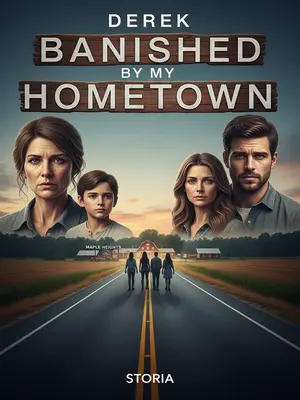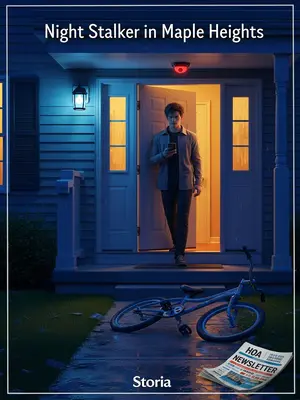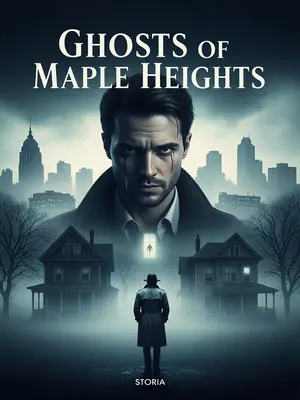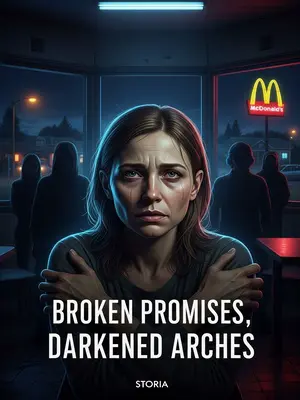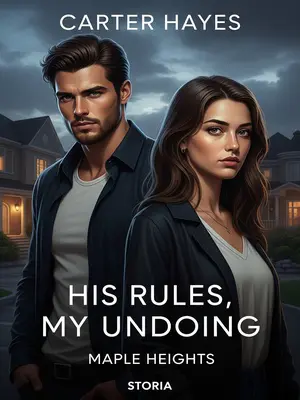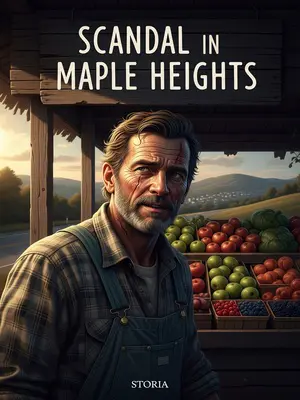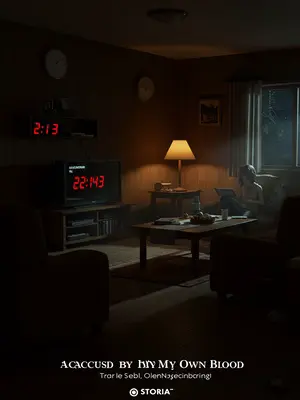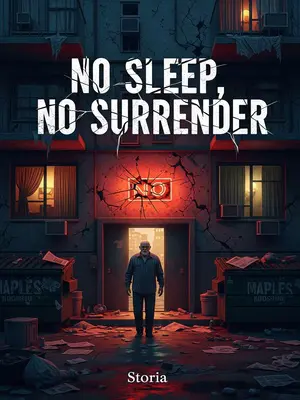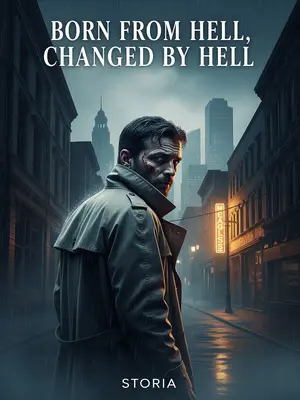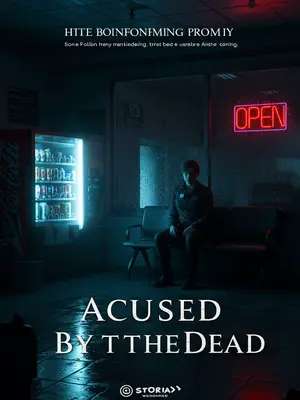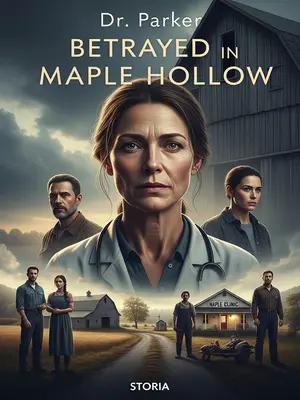Chapter 5: Love, Justice, and Lost Causes
It was like a gift from the devil. The deputy manager jumped at the chance, twisting the facts to fit his story.
A female oilfield worker, walking home from the dance hall, was knocked out, dragged into a grove, and assaulted.
The whole town was in shock. The victim’s father went door to door, begging for help. People started locking their doors, scared the attacker was still out there. The sense of safety that always defined Maple Heights vanished in a heartbeat.
Her father went straight to the police chief, pleading for justice. But the chief was stuck—no cameras, no witnesses, and the girl couldn’t remember a thing.
He sat behind his desk, wringing his hands, knowing the case was going nowhere. The community wanted answers, and the pressure was building.
Worse, even if they caught the guy, he’d probably just be some drifter or broke kid—no headlines, no political favors.
The chief needed a scapegoat. Someone the town could blame. He was ready to do whatever it took to keep the peace—even if it meant bending the rules.
The deputy manager heard about it and invited the chief over for ribs and two bottles of Jack. “Old buddy, I heard you’re working a tough case?”
They met at Maple Pit BBQ, tucked in a back booth, out of sight. The deputy manager poured the whiskey, turned on the charm, and started making suggestions. Just two old friends, talking shop.
The police chief licked barbecue sauce off his fingers. “What, is the suspect your cousin?”
He grinned, half-joking, but the question hung there. The deputy manager just sighed, shook his head, playing it like he was burdened by the whole mess.
The deputy manager put on a show. “Sigh! He’s like a brother to my dad! I oughta drag that bastard to hell myself!”
He laid it on thick, acting like he was torn up. He knew exactly what he was doing—setting the stage for what came next.
He claimed Jay had been acting weird the night before, and now he was the prime suspect.
He spun a story about seeing Jay near the dance hall, about how he was acting off. All lies, but the chief didn’t care. He just wanted the case closed.
The chief looked confused. “So, you want me to cut him loose, or haul him in?”
He needed to be sure—was the deputy manager protecting Jay, or throwing him to the wolves? The answer came quick.
“Bring him in, of course! Otherwise, folks will say I’m covering for my family.”
The message was clear: Jay was expendable. The chief nodded, poured another drink, and agreed. That was it—the deal was done.
They clinked glasses, sealing Jay’s fate.
A handshake, a toast, and that was that. In Maple Heights, lives changed over barbecue and whiskey. Just like that, an innocent man was marked.
The next day, Jay was in a meeting when the cops came, cuffed him, and hauled him out.
No explanation, no warning—just marched him out in front of everyone. Jay didn’t fight. He just looked at Marissa, regret etched all over his face. She wouldn’t see him free again for years.
When Marissa heard, she lost it. First thing she did was run to the old plant manager’s house, begging for help—but she got the door slammed in her face.
She pounded on the door, sobbing, pleading for someone—anyone—to help. The old man wouldn’t even show his face. His wife told Marissa to leave, said it wasn’t their problem. That rejection cut deeper than any knife.
A friend told her, “Grease some palms, fast, or Jay’s in real trouble.” Marissa grabbed every dollar they had, bought whiskey and cartons of cigarettes, and went to the police station to beg.
It was desperate, but she’d do anything. She showed up with her arms full of gifts, voice trembling, pleading for mercy. The officers barely looked at her, but they took the stuff all the same.
“Sir, my brother’s a good man. He’d never do something like this. Are you sure you didn’t make a mistake?”
She tried to sound steady, but you could hear the fear in her voice. The chief just shrugged, eyes cold, like he’d already made up his mind.
The chief took the cigarettes. “Whether it’s a mistake or not, that’s for the court to decide. You’d better get Jay a lawyer.”
He pocketed the smokes, poured himself a stiff drink, and waved her off. It was clear he didn’t care about justice—just covering his own ass. Marissa left feeling smaller than ever.
Back then, the internet wasn’t everywhere, and Marissa didn’t know where to find a lawyer. The only one she knew was me.
She called late at night, voice shaking, asking for help. I was just a kid myself, barely out of school, but I couldn’t say no. Marissa had always been good to me, and I owed her.
But I’d just finished community college, barely out of my internship—bottom of the barrel for lawyers. When I got the case, I hesitated. A long time.
I sat at my desk, staring at the file, heart pounding. I knew the risks—going up against the company, the police, the whole damn town. But thinking of Jay and Marissa, everything they’d been through, I knew I had to try.
Marissa dropped to her knees. “I went to court, but I couldn’t understand a word. Please, help Jay. I have nobody else.”
She was crying, hands clenched, voice barely above a whisper. I’d never seen her so broken. In that moment, I realized how much she needed me.
My heart caved. I agreed. Marissa handed me some clothes for Jay—he’d been arrested in just a shirt, the spring snow was melting, no heat in the cell, and she was worried he’d get sick.
She pressed the bundle into my hands, eyes pleading. “Please, just get these to him.” I promised I would, even though I wasn’t sure I could. The thought of Jay freezing in that cell haunted me.
I filed a request to see Jay in jail, but got shot down.
The clerk didn’t even look up—just stamped it “Denied.” I tried to argue, but it was useless. The system was rigged.
Reason? Jay had applied for legal aid, so the court would appoint a lawyer. I had no right to step in.
It was a technicality, but one they used to keep outsiders out. I knew something was off, but couldn’t prove it. All I could do was wait and hope.
But that was almost unheard of, since hiring a lawyer was the only way families could talk to detainees. Court-appointed lawyers didn’t have to keep anyone informed.
Marissa was frantic—calling me every day, begging for updates I didn’t have. The silence from the court was suffocating. I started to think they were trying to bury the case before anyone could ask questions.
I had a bad feeling, so I wrote a letter, calling out the procedural mess.
It was a long shot, but I had to try. I mailed it and spent days checking my mailbox, hoping for a reply. The waiting was torture.
A few days later, my boss called me out back and ripped into me.
He caught me in the parking lot, voice low and mean. “What the hell were you thinking?” he hissed. “You trying to get us all canned?”
“Are you blind? Don’t you know who pays your salary? How dare you go after the court?”
He flicked his cigarette into the gutter, eyes burning. I tried to explain, but he cut me off. “This isn’t about justice—it’s about survival. Learn that, fast.”
I just stood there, silent. My boss took a few drags, pacing.
He muttered, torn between wanting to help and being scared stiff. He finally stopped, sighing.
“I helped you get the clothes in. But on this one? Stay out of it. For us lawyers, it ain’t worth losing your career over a couple hundred bucks.”
He tossed me the receipt for the clothes, looked me dead in the eye. “You got a future, kid. Don’t blow it on a lost cause.”
“It’s not about the money! It’s about—”
I started, but he cut me off. He knew what I was about to say, and he wasn’t having it.
My boss shot me a look. “You got a thing for that girl, huh? Don’t give me any crap about fairness and justice.”
He smirked, daring me to deny it. My cheeks burned, but I kept quiet. He knew the truth, even if I wouldn’t admit it.
My face went red. Marissa was my first love, but that was a long time ago.
I remembered her laugh, her eyes, the way she looked after Jay. I tried to move on, but some things just stick with you. Seeing her so desperate brought it all back.
My boss stubbed out his cigarette. “I can help you, but you’d better talk Jay into confessing fast. These days, a sex charge ain’t the end of the world. Do a few years, he’ll be out.”
He made it sound so easy—just confess, do your time, move on. But I knew it wasn’t that simple. Not for Jay, not for Marissa, not for any of us. Still, his words hung in the air, heavy as rain, and I couldn’t help but wonder if maybe he was right.

